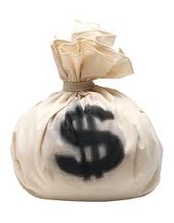How much should a bottle of wine cost? A glance at any given week’s recommended wines will confirm that price is all over the map, but I can attest to the fact that these picks are outstanding wines regardless of price. So how come one cabernet costs more than another if the quality is relatively equal?
First, there is the cost of the raw material. A ton of Napa Valley cabernet costs a winery more than a ton of Sonoma Valley cabernet because the land it is grown on is more valuable. By the same reckoning, a ton of Sonoma Valley cabernet costs more than a ton of Paso Robles cabernet, and for the same reason.
 Oh, if it were only no more complicated than that. There are other factors to consider, as well. One is the intent and goal of the winery. It’s no secret that lower yields produce finer wines. But growers who sell grapes by the ton have no incentive to lower yields because it hurts their bottom line. So wineries often pay a premium for grapes that have been farmed with lower yields in mind. That cost is passed on to consumers in the form of a higher price per bottle.
Oh, if it were only no more complicated than that. There are other factors to consider, as well. One is the intent and goal of the winery. It’s no secret that lower yields produce finer wines. But growers who sell grapes by the ton have no incentive to lower yields because it hurts their bottom line. So wineries often pay a premium for grapes that have been farmed with lower yields in mind. That cost is passed on to consumers in the form of a higher price per bottle.
It doesn’t end there. A winery can purchase expensive French oak barrels to age its wines, or it can take the less expensive route and use American oak cooperage. You will pay additional for wines aged in French oak.
But that’s not all. The winemaker may decide only new oak will do for his precious cabernet. That could mean a huge outlay of cash for new barrels each and every vintage. You will pay extra for that, too.
Then there is the curb appeal. Many wineries in recent years have built elaborate chateau-like estates to impress visitors to the all-important tasting room. Someone will have to pick up the tab for all of that eye candy, and that someone would be you.
Production levels also play a role in price. A winery that produces 50,000 cases of cabernet is likely to charge far less than a winery that produces 1,000 cases, lest the large-production cab gets stuck in a warehouse somewhere if the wine economy slows or tastes shift to some other adult beverage.
Finally, there is that fickle factor called the consumer. Ultimately, a wine is worth only what someone is willing to pay for it.
Email comments to [email protected] and follow Robert Whitley on Twitter @wineguru.
8
